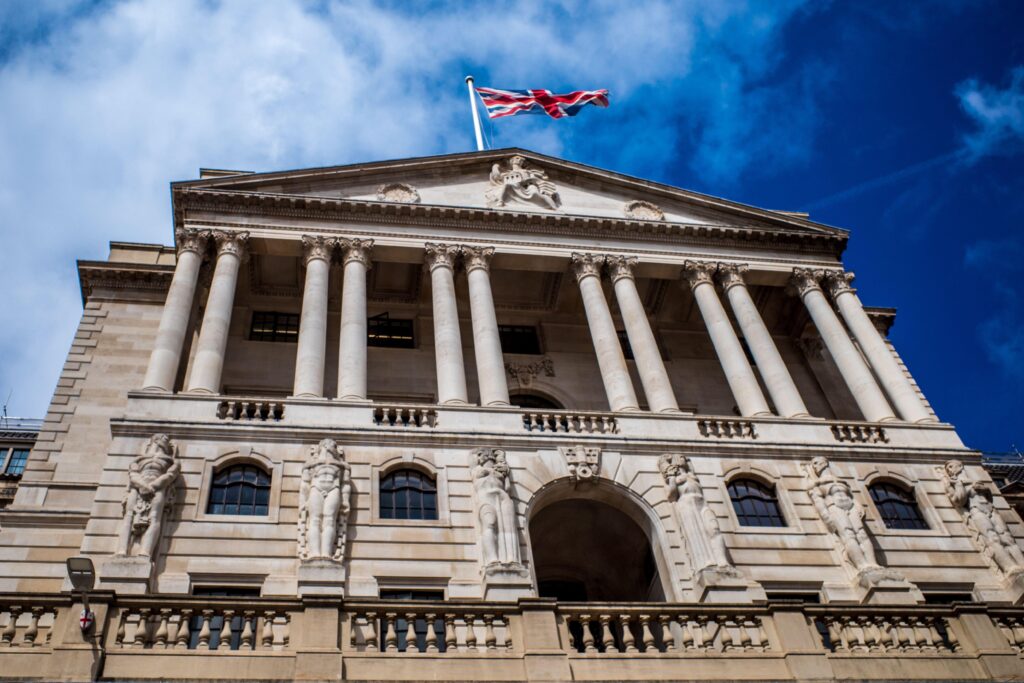Already own your own home or considering buying a property for the first time? Then you may have heard about the Bank of England Base Rate. Today the Bank of England announced that they are keeping the Base Rate at 5.25%, even though it was expected to increase to 5.5%.
But what exactly is it, and should you care what it currently stands at? In this straightforward article, we will cover what the Bank of England Base Rate means for mortgages, explain how changes in this rate can impact the mortgage market, and, ultimately, what it means for your mortgage if you already have one.
Understanding the Bank of England Base Rate
The Bank of England Base Rate, simply called the “base rate,” is the interest rate that is set by the Bank of England. This rate serves as a benchmark for the interest rates that banks and other lenders offer to their customers. The base rate is reviewed periodically (typically once every six weeks) by the Bank of England’s Monetary Policy Committee (MPC).
How Changes in the Base Rate Impact the Mortgage Market
When the Bank of England adjusts the base rate, it can have a ripple effect on the mortgage market. When the Bank of England decides to raise the base rate, the banks and lenders may increase the interest rates on new mortgages. As rates go up it means borrowers may pay more each month. On the other side, a decrease in the base rate can lead to lower interest rates on new mortgages, potentially reducing monthly payments.
But what happens if you already have a mortgage, what happens to your mortgage then?
If you have a fixed-rate mortgage, your interest rate and monthly payments remain unchanged for the agreed-upon term, regardless of base rate changes. This means that you are shielded from changes to the base rate.
However, if you have a tracker mortgage or a mortgage that is on a standard variable rate (SVR), your interest rate and payments may rise or fall in line with the base rate changes. Your lender will notify you of any changes to your interest rate and how this will impact your monthly payments. So, be prepared for potential fluctuations in your monthly budget.
Changes to the base rate can also have an impact on the affordability of mortgages. When interest rates rise, it can become more challenging for borrowers to qualify for new mortgages or re-mortgage their existing loans. This is because higher rates may lead to higher monthly payments, which puts strain on the household budget and then impacts your affordability assessment.
As changes in base rate occur it can influence the demand for homes. When rates are low, more people may be motivated to buy as mortgages are more affordable. As more people want to buy it potentially starts driving up property prices. Conversely, higher rates may deter buyers as mortgages become more expensive, and potentially affect property prices by driving prices down.
What Should You Do?
Understanding the Bank of England Base Rate is essential for homeowners and prospective buyers. Here’s what you can do:
- Stay Informed
- Keep an eye on news related to the base rate and how it is changing.
- Review Your Mortgage
- If you have a variable-rate mortgage, it is always a good time to review your options and see if there is a better rate available that offers more stability to your budget. But whilst on a variable rate be prepared for potential interest rate adjustments and their impact on your monthly budget.
- Seek Expert Advice
- If you’re unsure how rate changes might affect you, consider consulting a mortgage advisor who can provide personalised guidance.
The Bank of England Base Rate plays a significant role in the world of mortgages. Changes in this rate can influence your mortgage interest rates, monthly payments, and the overall housing market. Staying informed and being prepared for potential rate adjustments is key to managing your mortgage effectively.
Have questions about your mortgage in light of changes in the base rate? Contact us today for expert advice and personalised guidance to ensure you’re making the best financial decisions for your home.
THINK CAREFULLY BEFORE SECURING OTHER DEBTS AGAINST YOUR HOME. YOUR HOME OR PROPERTY MAY BE REPOSSESSED IF YOU DO NOT KEEP UP REPAYMENTS ON A MORTGAGE OR ANY OTHER DEBT SECURED ON IT.
